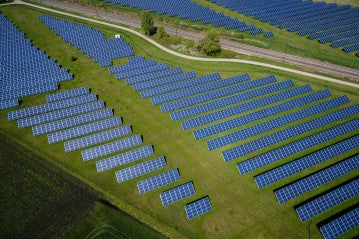
As the popularity of solar energy continues to soar, more and more homeowners are considering harnessing the power of the sun by installing solar panels. However, amidst the excitement of transitioning to clean energy, questions often arise about the technical aspects of solar installations. One such question is whether a solar inverter needs to be grounded. In this article, we will explore the importance of grounding a solar inverter, how to do it properly, and the difference between grounded and ungrounded solar inverters.
Why Grounding Matters
Solar panels generate DC (direct current) electricity, which is then converted into AC (alternating current) electricity by the solar inverter. Grounding the solar inverter is crucial for a few reasons. First and foremost, it ensures the safety of your electrical system. Grounding helps protect against electrical faults, such as short circuits or electrical surges, by providing a safe path for excess electrical current to flow into the ground. Without proper grounding, these faults could pose a risk to the system and the people interacting with it.
Secondly, grounding helps mitigate the risk of electric shock. In the event of a fault, a grounded system directs the electrical current away from equipment and structures, minimizing the chance of accidental electrocution. This aspect is particularly important in grid-tied systems where electricity can flow back into the utility grid.
Grounding a Solar Inverter of a Grid-tied System Properly
In a grid-tied solar system, where the solar panels are connected to the utility grid, grounding becomes even more critical. Here are the steps to ground a solar inverter properly:
1. Consult a Professional: Before attempting any electrical work, it is advisable to consult a certified electrician or a qualified solar installer. They can guide you through the process and ensure compliance with local electrical codes and regulations.
2. Install Grounding Electrode: A grounding electrode, such as a copper grounding rod, must be installed near the solar inverter. This electrode provides a direct connection to the earth and serves as the reference point for grounding.
3. Connect Inverter to Ground Electrode: The inverter should be connected to the grounding electrode using a properly sized grounding conductor. This conductor typically consists of copper wire with insulation designed for outdoor use.
4. Bonding of Equipment: It is essential to bond all metal equipment, including the solar panel frames and any metallic conduit, to the grounding system. This bonding helps maintain equipotential grounding, reducing the risk of potential differences between different metallic parts of the system.
Where Does the Ground Wire Go on an Inverter?
The location of the ground wire connection on a solar inverter may vary depending on the manufacturer and model. However, most inverters have a clearly labeled grounding terminal or lug for connecting the ground wire. It is crucial to follow the manufacturer's instructions and guidelines when locating and connecting the ground wire. If you're unsure, consult the inverter's installation manual or seek professional assistance to ensure correct grounding.
Difference Between Grounded and Ungrounded Solar Inverters
There are two main types of solar inverters: grounded and ungrounded. The primary distinction between them lies in their approach to electrical grounding.
Grounded Solar Inverters:
Grounded solar inverters have a dedicated grounding connection, connecting the inverter's housing to the grounding system. This type of inverter provides an additional layer of safety by diverting excess electrical current to the ground in case of faults or abnormal conditions. Grounded inverters are the most common choice in grid-tied solar installations, as they comply with electrical codes and regulations.
Ungrounded Solar Inverters:
Ungrounded solar inverters, on the other hand, do not have a direct connection to the grounding system.
Instead, they rely on internal insulation and fault detection mechanisms to mitigate electrical faults. Ungrounded inverters are typically used in off-grid or isolated systems, where the risk of electric shock is minimized due to the absence of a connection to the utility grid.
Conclusion
When it comes to grounding your solar inverter, the answer is a resounding "Yes." Properly grounding your solar inverter is crucial for maintaining a safe and reliable solar system. It protects against electrical faults, reduces the risk of electric shock, and ensures compliance with electrical codes and regulations. Remember to consult professionals, follow the manufacturer's guidelines, and consider the specific requirements of your grid-tied or off-grid system. By grounding your solar inverter correctly, you can enjoy the benefits of solar energy with peace of mind, knowing that your system is operating safely and efficiently.
Harnessing the power of the sun with solar panels is an exciting journey, and proper grounding is one of the important steps along the way. So, take the necessary precautions, go solar, and let the sun shine on your sustainable energy future!


0 Kommentare